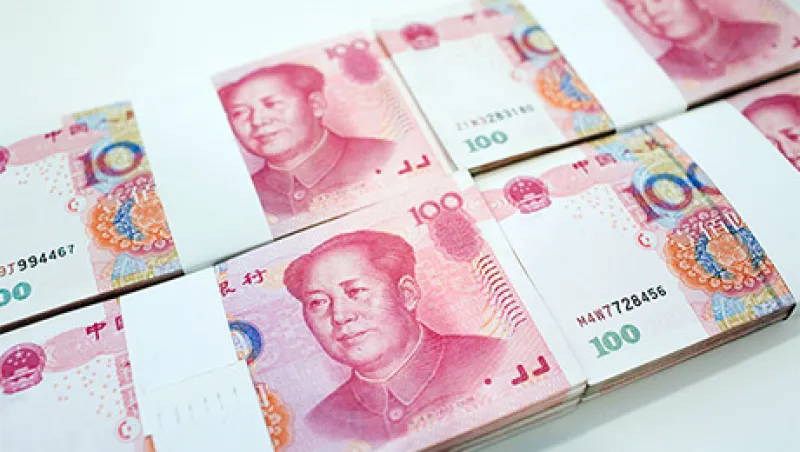When George Osborne, Britain’s chancellor of the Exchequer, opened the inaugural UK-China Bilateral Investment Conference in September, he pledged that his would be the first Western country to issue a sovereign bond denominated in renminbi. Less than a month after the London gathering, Her Majesty’s Treasury kept that promise by launching a three-year, 3 billion yuan ($488 million) offering with a coupon of 2.7 percent. Though small in size, the deal marked a big step forward in the internationalization of the Chinese currency and in Osborne’s bid to make London the top global renminbi trading hub.
From 12 prospective banks the Treasury chose just three to run the bond issue, naming Bank of China, HSBC Holdings and Standard Chartered as joint lead managers. It tapped those firms partly for their ability to provide custody and maintain accounts in renminbi; HSBC contributed some additional services and acted as billing and delivery agent.
Osborne, 43, took charge of the deal, which was overseen by several Treasury departments, with involvement from the Bank of England. “One of the Treasury’s key requirements was to provide value for money for the U.K. taxpayer,” says Chris Jones, London-based global head of local currency syndicate at HSBC.
That meant the three banks had to drum up strong demand. They attracted 5.8 billion yuan worth of orders from 85 accounts, a feat that let them tighten pricing from initial guidance of 2.9 percent, using Chinese government bond yields and issues by top-tier supranational institutions such as International Finance Corp. for benchmarks. Only a handful of investors pulled out. “When netted against additional orders being added, the books never decreased in overall size,” Jones says. A little more than half of the bonds went to Asian investors, with a third going to Europe and the rest to the Americas. Commercial banks accounted for 64 percent, followed by fund managers with 19 percent and central banks and official institutions with 17 percent. “Half of the order book came from investors who were new to public sector issuance in renminbi,” Jones says.
The British government, which used proceeds from the issuance to bolster the reserves in its Exchange Equalization Account, plans to reinvest the funds in the offshore renminbi market. The U.K. is the second Group of Seven nation, after France, to add renminbi to its reserves, which previously consisted only of U.S. dollars, euros, Japanese yen and Canadian dollars. Given that some 40 central banks now hold the Chinese currency, this move cements its status as a de facto reserve currency.
Britain accounted for 60 percent of European renminbi trading in 2013, when London’s total averaged $25.3 billion per day, a 50 percent increase from the previous year. Through August renminbi payments from the U.K. were up 123 percent over the first eight months of 2013, according to interbank messaging provider SWIFT, making the country by far the market leader in Europe and second worldwide only to Singapore, excluding Hong Kong and mainland China. Luxembourg and France reportedly have been giving serious thought to issuing their own renminbi bonds. Meanwhile, the Asian Development Bank and the Canadian province of British Columbia have done so in the wake of the deal by the U.K. government, which has left the door open to future offerings.
Top 10 Deals of 2014
- Kinder Morgan Goes All In
- Comcast Faces Screen Test
- Actavis Realizes Bigger Pharma Ambitions
- Medtronic, Covidien Home In on Tie Up
- Lafarge and Holcim Pour It On
- Alibaba Sets IPO Record with NYSE Debut
- Facebook's Data-Driven Takeover of WhatsApp
- Altice Turns Paper Profit
- Eurobank Ergasias Spearheads a Greek Banking Revival
- Bond Issue Boosts U.K.'s Renminbi Trading Cred






